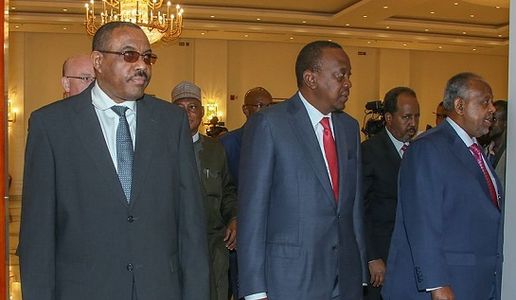Woldemariam Publishes Op-Ed on Implications of Gulf Crisis

Michael Woldemariam, Assistant Professor of International Relations and Political Science at the Frederick S. Pardee School of Global Studies at Boston University, recently published an essay examining the impact the ongoing Gulf Crisis could have on reshaping the Horn of Africa.
Woldemariam’s essay, entitled “Old Game, New Stakes: How the Gulf Crisis Could Reshape the Horn of Africa,” was published on August 1, 2017 in the World Politics Review.
From the text of the essay:
When a group of four Arab countries led by Saudi Arabia launched a dramatic diplomatic gambit by severing ties with Qatar in early June, the crisis immediately commanded the world’s attention. The leaders of major powers, from Washington to Paris and Beijing, recognized the situation’s high stakes and—with the exception of some early-round Twitter provocation from U.S. President Donald Trump—began pushing for a resolution.
In Africa, too, the Gulf spat drew swift responses, with countries such as Mauritania and the Comoros following Riyadh’s lead and breaking ties with Doha, while others staked out less forceful positions or promoted dialogue. Meanwhile, in the Horn of Africa, the six-country region in the continent’s northeast that is geographically closest to the action, the reaction could be summed up with one word: panic.
Woldemariam’s teaching and research interests focus on African politics, particularly the dynamics of armed conflict, the behavior of rebel organizations and self-determination movements, and post-conflict institution building. He has special expertise in the Horn of Africa, and has conducted fieldwork in Ethiopia, Mozambique, Somaliland, South Africa, and India.